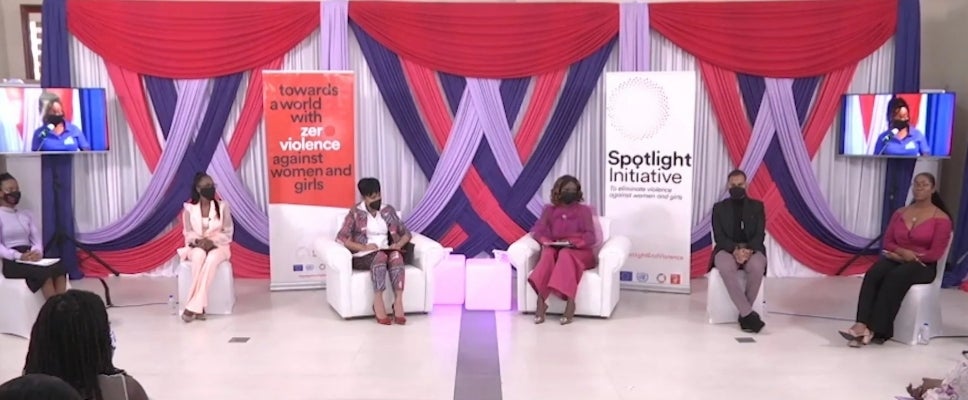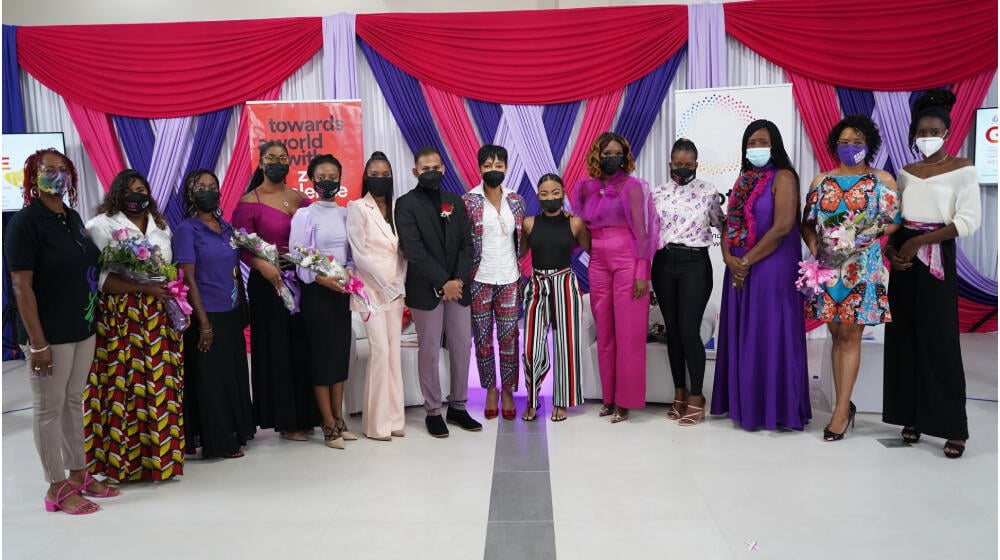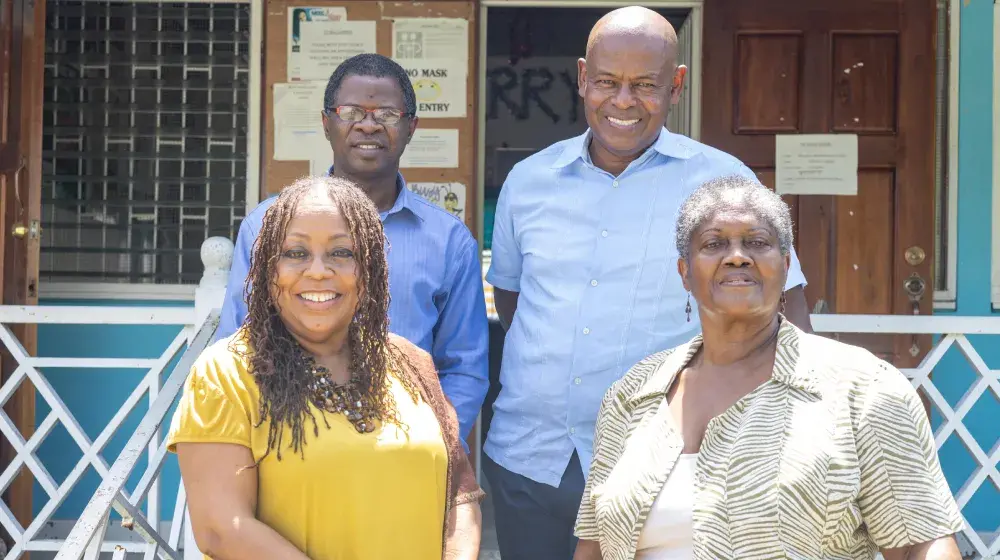Youth leaders from Trinidad and Tobago are asking for better representation and to be more included in discussions on GBV. They were recently engaged in conversation on gender based-violence (GBV) and its impact on young people, assessing gaps in the delivery of GBV solutions and advancing recommendations on youth focused policy actions. The event, “GBV & ME: Insights and solutions from the youth of the region” was hosted by Mrs. Sharon Rowley, National Champion for the Spotlight Initiative Trinidad and Tobago, and took place on May 14, 2022, at the Prime Minister’s residence in Tobago, as well as virtually.
Mrs. Rowley welcomed the youth leaders and reminded them that their contribution to the national discourse on GBV is integral to finding creative solutions to end all forms of violence against women and girls, with a particular focus on family violence. In her remarks she stated, “I look at the need for us to be our sister’s and our brother’s keepers…, we have to look after our friends, we have to look after our family members. We have to do everything in our power to support persons who are being abused.”
Khaleem Ali, a member of Youth Voices Matter and the Silver Lining Foundation in sharing his insights for change, opined that the Domestic Violence Act should be amended to recognise abuse in relationships that are not heteronormative. Currently, it does not recognize same sex relationships in the definition of cohabitant. We also note that family violence is meted against children and other family members who may not conform to societal gender norms.
Bernice Antoine, Co- Chair of UNFPA Youth Advisory Group championed a call for the Health and Family Life Education (HFLE) to be a mandatory part of school curricula. This recommendation was mirrored in Mrs. Rowley’s suggestion that GBV education should be integrated within the curricula and taught in schools, at both the primary and secondary levels.

The other solutions discussed by the youth panel included greater and more meaningful youth representation in policy committees and task forces, sensitization and parenting workshops that are community focused with social media outreach, urgent action on sexual harassment in employment, education and the pervasive issue of street harassment. There was also a call for us to take into account our history and culture when exploring strategies for behaviour change.
Suggestions for this included the use of theatre and dance, as well as incorporating varying facets from our rich cultural heritage to inform and educate the public about gender based violence.
Other members of the youth panel included Chelle Borel – Rio Claro/Mayaro Youth Representative, Daryan Campbell – Tunapuna/Piarco Youth Representative, Keigon Denoon - Trinidad and Tobago Youth Council/CARICOM Youth Ambassadors and Ms. Renee Atwell - Dean of the CARICOM Youth Ambassador Corps
United Nations Population Fund (UNFPA) Gender Based Violence Specialist Asiya Mohammed, provided an important perspective on behalf of UNFPA’s Sub Regional Office of the Caribbean, on behalf of Director, Alison Drayton and UNFPA Country Liaison Officer for Trinidad and Tobago Aurora Noguera-Ramkissoon. Ms. Mohammed highlighted that under the Spotlight Initiative the HFLE curricula in primary and secondary schools is being revised in conjunction with the Ministry of Education and the University of the West Indies to integrate family violence.
This youth focused event was coordinated by UNFPA’s implementing partner, the Ida Marie Guerra Indigenous Creative Arts Network (ICAN), under the United Nations Spotlight Initiative implemented with generous support from the European Union, in partnership with the Trinidad and Tobago government and civil society.





